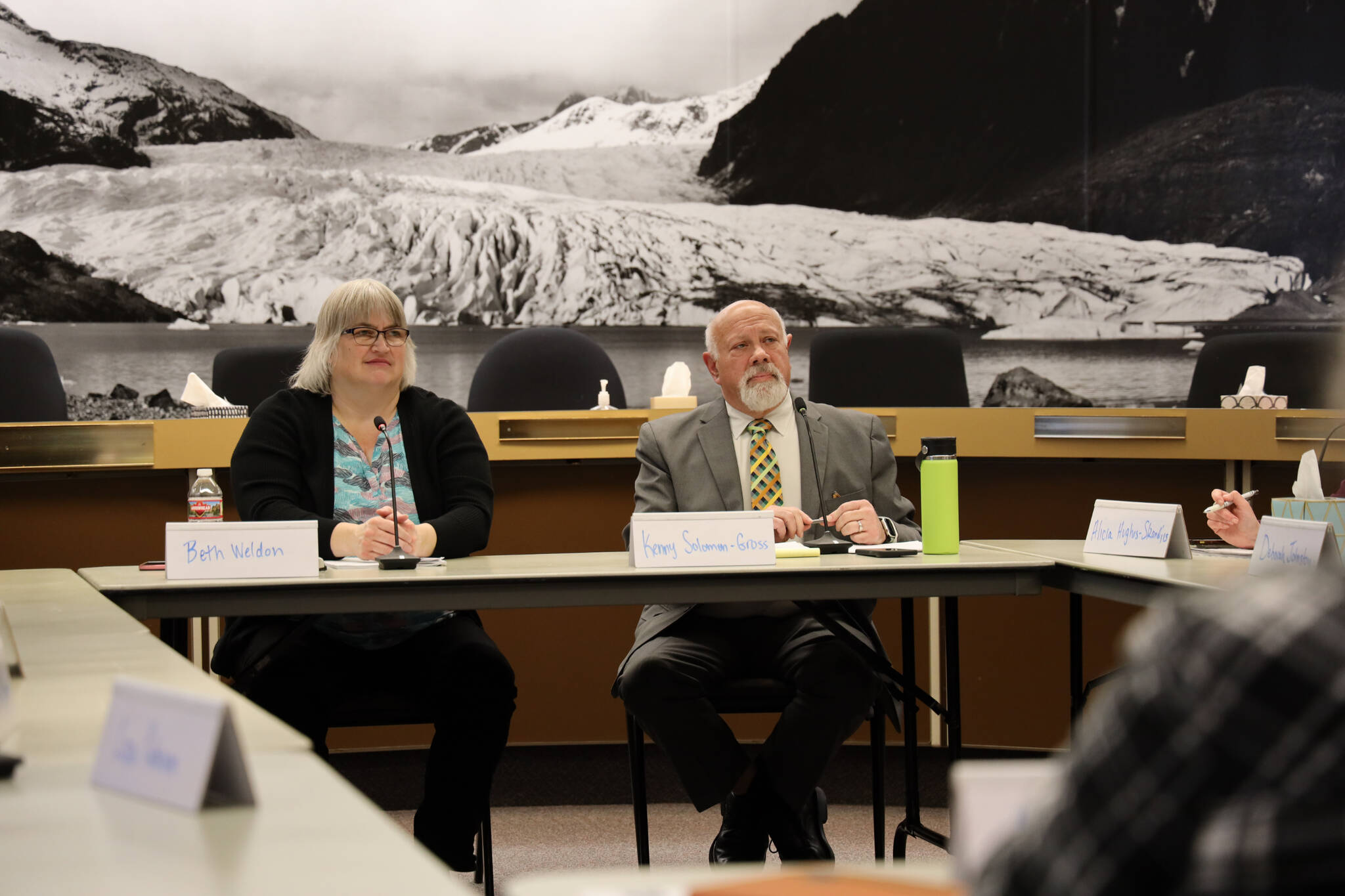The City and Borough of Juneau Assembly and members of the Bartlett Regional Hospital senior leadership team and board discussed the current state of the hospital’s finances which since the summer of 2020 has been losing more than $1 million each month and in total is expected to lose more than $10 million this fiscal year.
The hospital announced its initial measures to address the growing deficit in early January which meant implementing a three-phase action plan including reduction in hiring, overtime and purchasing in the first phase, canceling incentive pay, incentivizing retirement and reducing deductions in temporary staffing in the second phase, and lastly streamlining leadership, eliminating programs and a “workforce realignment” in the third phase.
Currently, the hospital is in the process of implementing the first two phases but has yet to begin the third.
“The hospital has some issues with their finances, and we’re not alone in this,” said Bartlett Regional Hospital Board President Kenny Solomon-Gross at the joint meeting Wednesday evening. “All over the country right now hospital systems are in trouble and having issues going on so the hospital is not alone and we’re just trying to be proactive on this.”
Solomon-Gross led the Wednesday evening discussion which outlined what factors led to the deficit and explained the actions being taken to solve it. He said that part of the reason the deficit was able to grow to such an unprecedented level before explicit action was taken was due to the loss being largely covered up by temporary COVID-19 funding which amounted to around $12 million a year.
“It was masked, and it wasn’t really showing the picture, but you can still see the money was dropping off and we just weren’t there,” he said.
Once that additional funding stopped, he said the hospital could clearly see its financial state which revealed that since the summer of 2020, its expenses outweighed its revenue, which has resulted in the hospital losing around $1 million a month.
Solomon-Gross said a correlation could be drawn between the hospital’s gap in revenue with the growing costs of goods, services and demand for workers happening across all businesses and in the medical industry. Even with the hospital seeing its net revenue increase by $19.7 since 2019, it’s been outweighed by its cost of labor increasing by $21.3 million along with the cost of supplies rising by $9.1 million.
The hospital also increased its staffing hours by around 19% which equates to an additional 146 full time-positions from 2019, which Solomon-Gross explained was in part to hire people to staff the hospital’s new molecular lab and pay for the associated costs to maintain it.
Brenda Knapp, hospital board member, said another major factor that contributed to the deficit is the hospital’s closure of its elective surgery program early on during the pandemic which she said was a “major revenue source for the hospital.”
“We need to have that inpatient revenue as part of our operation dollars, and we had to shut that down overnight due to COVID, but we still have the full component of staff because we needed to have people on board not knowing what was going to happen from day to day in terms of the need to be ready,” she said.
Multiple Assembly members expressed concern about staff morale amid the changes that are happening at the hospital. No general hospital staff appeared to be present at the meeting and no comment was made beyond the explanations of the board and senior leadership team members.
According to Solomon-Gross and Kieth, a message was sent to all hospital staff that notified them of and welcomed them to the meeting. Anecdotally, the hospital’s chief nursing and operational officer, Kim McDowell, said morale is different for each individual staff member, but emphasized that the hospital is doing its best to offer support to staff and hear concerns or feedback.
“This is an area that Bartlett had not chartered these waters before,” she said. “We had a meeting with our managers and someone said, ‘You know the staff are scared and they’re nervous,’ and I said, ‘I am too — we haven’t been here before, we know where we don’t want to go back to, we just have to figure out how to move forward.’”
Despite the gloom of the hospital’s unclear future that seemed to hover over some members throughout the meeting, Solomon-Gross, alongside hospital CEO David Keith and other board members expressed optimism in the hospital’s ability to recover and grow beyond the deficit.
“I really believe that what our hospital is doing, and what our administration is doing is being super productive,” Solomon-Gross said.
Solomon-Gross said in an interview after the meeting that he hopes during the process to bring the hospital back to a balanced budget that the Assembly and hospital board are able to stay connected and have transparency in the process to ensure the hospital can serve and grow with the community.
He said more significant impacts of the phased cost-cutting action plan to balance the deficit will likely be more visible in the coming months as the plan moves into its third phase — which includes workforce realignment and eliminating programs — and will be communicated to the city and public.
• Contact reporter Clarise Larson at clarise.larson@juneauempire.com or (651)-528-1807. Follow her on Twitter at @clariselarson.

